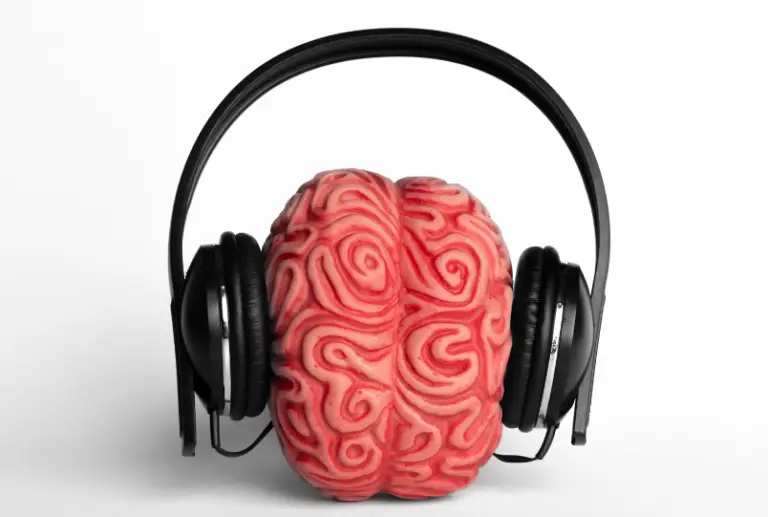Music has been a part of human culture for thousands of years and has been used for many different purposes, from religious ceremonies to entertainment and relaxation. But in recent years, scientists and researchers have begun to study the effects of music on the human brain, and the results are surprising. It turns out that listening to music can actually have a significant impact on our ability to focus and be productive.
- Music to Boost Your Mood One of the most significant ways in which music can help us focus is by boosting our mood. Studies have shown that listening to music can have a positive effect on our emotions and energy levels, which can then translate into increased focus and productivity. For example, upbeat music with a fast tempo has been shown to increase feelings of happiness and excitement, while relaxing music can help reduce stress and anxiety. This is because music has the ability to activate different areas of the brain that are associated with emotions and motivation.
- Music to Block Out Distractions In today’s fast-paced and noisy world, it can be difficult to focus on our work. Distractions are everywhere, from the constant chatter of coworkers to the endless stream of notifications on our phones. But music can help block out these distractions and allow us to concentrate on the task at hand. This is especially true for instrumental music, which has been shown to be more effective at reducing distractions compared to music with lyrics. This is because instrumental music does not require us to use our language centers in the brain, allowing us to focus more fully on the task at hand.
- Music to Enhance Memory Music can also have a positive effect on our memory. In a study conducted at the University of California, Irvine, participants who listened to classical music while working on memory tasks showed a significant improvement in their performance compared to those who didn’t listen to music. This is because music can activate different parts of the brain, including areas that are associated with memory and learning. In addition, music has been shown to stimulate the release of neurotransmitters, such as dopamine and norepinephrine, which are associated with improved memory and learning.
- Music to Improve Attention Span Finally, music can also help increase our attention span, allowing us to stay focused for longer periods of time. A study conducted at the University of Wales found that students who listened to background music while studying were able to concentrate for longer periods of time compared to those who didn’t listen to music. This is because music can help to stimulate our brain, improving our ability to focus and stay alert. In addition, music has been shown to reduce boredom and increase motivation, making it easier to stay focused on a task.
In conclusion, music has been proven to have a number of benefits when it comes to focus and productivity. Whether you’re looking to boost your mood, block out distractions, enhance your memory, or simply stay focused for longer, music can be an effective tool to help you achieve your goals. So, the next time you’re struggling to focus, consider putting on some of your favorite tunes and see if it helps!
And don’t forget, in our previous article, “The Top Reasons Why Piano is the Best Instrument to Learn“, we highlighted the many benefits of learning to play the piano, including improved focus and increased creativity. Learning to play an instrument can be a great way to challenge your brain, improve your focus, and boost your overall productivity. So, if you’re looking for a new hobby that will help you become more productive, consider picking up the piano. Whether you decide to take lessons, learn on your own, or join a group class, the experience of learning to play an instrument can be both rewarding and challenging, providing you with a creative outlet that can also help you focus and improve your productivity.
One of the key benefits of playing the piano is the discipline it requires. Learning to play an instrument takes practice, patience, and dedication, and these skills can be transferred to other areas of life. By developing a strong work ethic through learning to play the piano, you can improve your focus and productivity in other areas of your life.
In addition, playing the piano can also help to reduce stress and anxiety. Studies have shown that playing an instrument can be a therapeutic experience, helping to relieve stress and improve overall mental health. By practicing regularly and playing the piano, you can create a healthy outlet for stress and reduce distractions, allowing you to focus better on other areas of your life.
Whether you’re looking to improve your focus and productivity, reduce stress and anxiety, or simply have fun and enjoy a new hobby, learning to play the piano can be a great investment in yourself. So why not give it a try? Who knows, you might just surprise yourself with what you can achieve!
FAQ’s
Q1. How does music help with focus and productivity?
A: Music has a powerful effect on the brain, helping to regulate emotions, reduce stress, and improve focus. Listening to certain types of music can help to increase concentration and mental alertness, making it easier to complete tasks and be more productive.
Q2. What type of music is best for improving focus and productivity?
A: The type of music that works best for improving focus and productivity can vary from person to person. However, instrumental music with a steady beat, such as classical or ambient music, has been shown to be effective in boosting focus and productivity.
Q3. Can playing an instrument like the piano help improve focus and productivity?
A: Yes, playing an instrument like the piano can have a positive impact on focus and productivity. Learning to play the piano requires discipline, practice, and dedication, which can help to develop a strong work ethic and improve focus and productivity in other areas of life. Additionally, playing an instrument can also help to reduce stress and improve mental well-being.
In conclusion, music has a profound effect on our ability to focus and be productive, and playing the piano is just one example of how we can harness the power of music to improve our lives. Whether you choose to listen to music or take up an instrument, incorporating music into your life can be a great way to boost your focus, productivity, and overall well-being.


